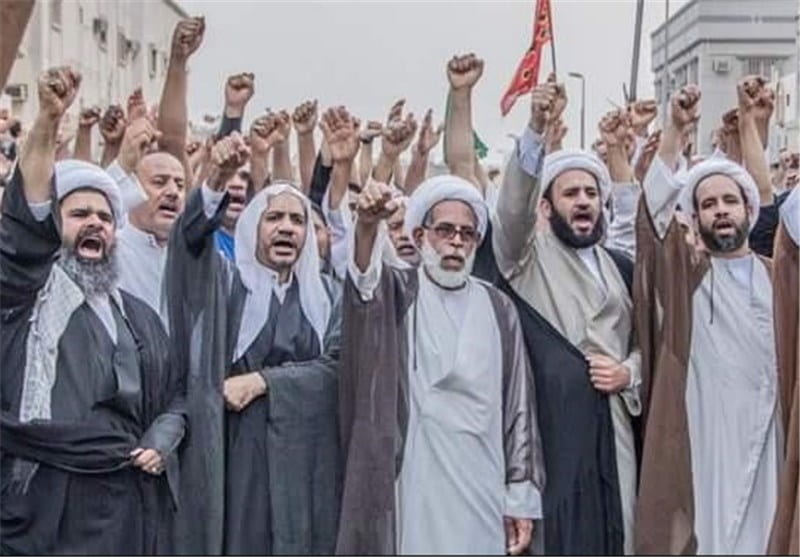I recently wrote a blog post commending Saudi Arabia on advancements made with women’s rights. However, to follow up, I think it is important to note what Saudi Arabia still gets wrong in terms of human rights. While there are many ongoing human rights violations, the following discourse will focus specifically on the oppression of religious minorities, namely Shia Muslims, and the lack of freedom of speech. I am writing this post not to join the voices that criticize for the sake of criticizing, but rather because I think it is important for Muslims to be vocal about their expectations for countries that claim to be representing Islam.

Shia Muslims
Shia Muslims are a minority sect in Islam, making up around 10 percent of all Muslims. Because of this, they are often subject to oppression and discrimination by Sunni Muslims. Despite the fact that harmful rhetoric against Shia Muslims exists in most, if not all, Sunni-majority countries, it is especially disturbing in Saudi Arabia considering that the hatred and intolerance towards Shia Muslims has become institutionalized. For example, the Saudi Arabian government has allowed officials and religious scholars to belittle Shia Muslims and their beliefs. This is not only concerning because of the harmful language used, but also because these officials and scholars have influence over both the government and the general public, and thus play significant roles in shaping policy and public opinion. One government official known for spreading hateful rhetoric about Shia Muslims was Former Grand Mufti Abdel Aziz bin Baz, who was quoted saying, “The Shia are Muslims and our brothers? Whoever says this is ignorant, ignorant about rejectionists for their evil is great.” This is one example of many, but it illustrates the hateful rhetoric that Shia Muslims are often victims of.
The institutionalization of hatred against Shia Muslims is most clear in the Saudi Arabian justice and education systems. The justice system is highly discriminatory against Shia Muslims, namely in the criminalization of their religious practices and beliefs. Further, the government has made it illegal to build Shia mosques outside of Shia-majority cities. The education system is perhaps the worst of all, though, because it perpetuates the cycle of discrimination against Shia Muslims by indoctrinating young Saudi children with anti-Shia sentiments. For example, textbooks used in elementary and middle schools stigmatize Shia beliefs and practices and go as far as to claim that Shia Muslims are disbelievers, suggesting that Shia should not be considered Muslims. While criticizing their beliefs and practices is problematic in and of itself, saying that Shia are not Muslims is impermissible, both ethically and religiously, and only serves to cause further hatred and intolerance.

Freedom of Speech
The most blatant example of a human rights violation against the people of Saudi Arabia is the lack of freedom of speech, which has especially detrimental ramifications for individuals advocating for human rights. For example, in 2018, several women’s rights activists were arrested and charged with treason solely for their work in activism. This came at the same time that Prince Mohammed bin Salman had lifted the ban on women driving, and ironically, many of the women who were arrested had been advocating for women’s right to drive. Thus, while lifting the ban was a positive move forward, the imprisonment of these women makes the intentions behind Prince Mohammed bin Salman’s decision to lift the ban confusing; it is difficult to deduce whether Prince Mohammed bin Salman is truly concerned with women’s rights, or if this was a step taken to make Saudi Arabia appear that it is being reformed and moving towards modernization. His intentions can be further called into question considering the extent to which these women’s rights have been violated; not only were these women arrested and detained, but it is known that they were also electrically shocked and whipped during interrogations, which amounts to cruel and inhumane treatment. To this day, some of these women are still imprisoned, unlikely to be released without international intervention. However, it is important to note that this was not an isolated event. While Saudi Arabia has always used arrests and detentions to deal with dissidents, the number of detentions significantly increased after Prince Mohammed bin Salman took power in 2017; over 60 individuals identified as dissidents have been arrested and held.
Muslims around the world strongly oppose Islamophobia and the oppression of Muslims, which is a great thing. However, Muslims tend to be silent about Saudi Arabia’s human rights violations, which is troubling. While many Muslims do call out these violations, many others either turn a blind eye, or even worse, find justifications for these violations. However, this is a double standard; if Muslims around the world truly care about their own rights, it follows that they must care about the rights of all of those who are oppressed, especially when Muslim majority countries are responsible for causing this oppression.
